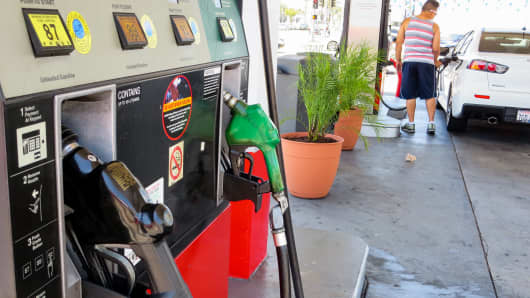The drop is even more surprising given the recent flare-up of global conflicts from Libya to Israel, producing the kinds of headlines that typically drive crude oil prices higher. But with the U.S. now producing more crude than it imports, oil prices have remained relatively tame.
"The boom in North American crude oil production provides a cushion that helps insulate the U.S. from some of the impact of global conflict on oil prices," said AAA spokesman Michael Green.
Consumers this week have paid the lowest gas prices since the middle of March. The national average price for a gallon of regular gas was $3.52, according to AAA.
Read More Gas prices shouldn't be high, but are. Here's why
As always, those averages mask wide differences in what you'll pay depending on where you live. Prices vary state by state because of a variety of factors—from transportation costs, state gas taxes and differences in regional supplies of cleaner-burning summer blends.
Statewide average pump prices were highest this week in Hawaii ($4.34), Alaska ($4.13), California ($3.98), Oregon ($3.92) and Washington ($3.92). Those with the cheapest gas include: South Carolina ($3.25), Alabama ($3.26), Tennessee ($3.29), Oklahoma ($3.30) and Missouri ($3.30).



